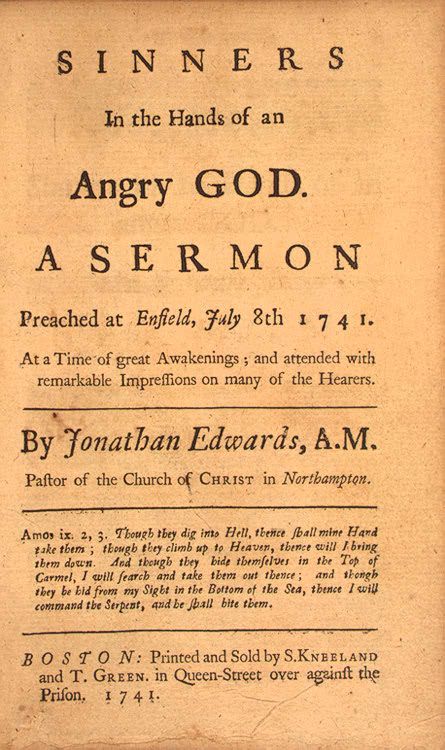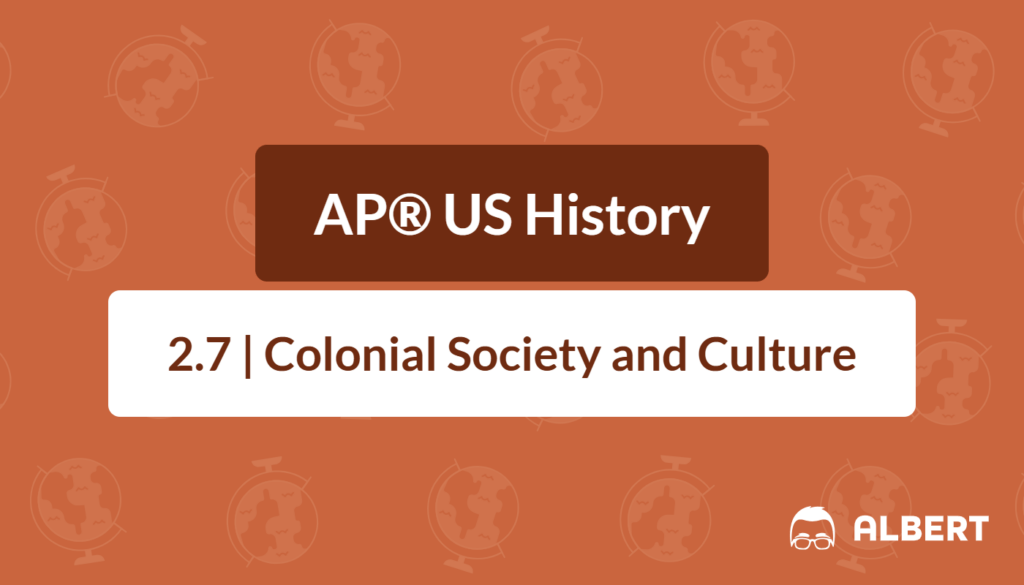What We Review
Colonial Society and Culture — AP® US History Study Guide (Unit 2.7)
Understanding colonial society and culture is key to seeing how early America developed its unique identity. During the colonial period, people, religions, and ideas crossed the Atlantic Ocean, blending old world traditions with new world realities. This cultural exchange shaped how people lived, governed themselves, and eventually led the colonies down the path toward independence.
This guide will break down important concepts and vocabulary, stepping through main developments with simple language and solid examples. By the end, you’ll see how the movement of people and ideas built the foundation for American society — and set the stage for the American Revolution.
The Movement of People and Ideas Across the Atlantic
Many groups made their way to the American colonies. Each brought unique traditions, beliefs, and skills. These differences led to a richly diverse society, sometimes called cultural pluralism.
Key Groups:
- European Settlers: English, German, Scots-Irish, Dutch, and more.
- Africans: Most arrived as enslaved peoples, bringing their cultures and traditions.
- Indigenous Peoples: Native American tribes already living in North America.
As these groups interacted, they exchanged languages, foods, ideas, and customs. Over time, this movement created a distinctly American society — not simply a copy of Europe.
Example: The Spread of the Great Awakening and Enlightenment Ideas
- The Great Awakening was a religious revival that began in the 1730s, led by passionate preaching and large public meetings.
- Enlightenment thinkers shared ideas about reason, science, and individual rights through books and pamphlets.
Step by Step: How Ideas Spread
- Preachers like George Whitefield travel up and down the colonies, speaking to crowds and inspiring emotional religious experiences.
- Pamphlets and newspapers share Enlightenment ideas like liberty and equality.
- Colonists talk about these ideas in churches, taverns, and homes.
- Over time, attitudes change: people become more willing to question authority and value personal belief.
Check Your Understanding
How did the movement of people and ideas shape colonial culture?
The exchange among European settlers, Indigenous peoples, and Africans led to a blending of customs, languages, and traditions. New religious and political ideas—circulated through conversation, sermons, and printed materials—challenged old ways of thinking and encouraged new perspectives. These interactions fostered a society shaped by cultural diversity, adaptation, and growing openness to change.
Religious and Intellectual Diversity in the Colonies
Religious freedom drew many to the colonies. As a result, different faiths flourished alongside one another.
Major Religious Groups:
- Puritans: Mainly in New England, focused on strict religious rules.
- Anglicans: The official church in colonies like Virginia.
- Quakers: Known for tolerance and pacifism, especially in Pennsylvania.
- Catholics, Jews, Baptists, and others also formed smaller communities.
Colonists were exposed to new ideas not only from Europe but also from within their own societies.
- The First Great Awakening promoted more emotional worship and challenged old religious authorities.
- The Enlightenment led many to value reason, science, and individual rights.
Example: Jonathan Edwards and Enlightenment Pamphlets
- Jonathan Edwards’s sermons encouraged people to seek personal religious experiences, not just follow church rules.
- Pamphlets explaining Enlightenment beliefs, like John Locke’s ideas about natural rights, inspired colonists to think about government differently.

Example: How Religion and Enlightenment Ideas Influenced Colonial Thinking
A colonist hears a powerful sermon during the Great Awakening and begins to question the authority of local church leaders. Later, they encounter a pamphlet inspired by Enlightenment philosophy, arguing that all individuals have natural rights. These experiences spark conversations within their community about freedom, equality, and governance, encouraging colonists to challenge traditional structures in both religion and politics.
Check Your Understanding
Name two ways religion and Enlightenment ideas changed colonial society.
- The Great Awakening promoted emotional, individual connections to faith and weakened the control of established churches, encouraging people to think for themselves.
- The Enlightenment emphasized reason, science, and natural rights, leading colonists to question political authority and begin debating the role of government and individual liberty.
The Process of Anglicization
Anglicization means making something more like England. Over time, the colonies became more English in some ways.
How This Happened:
- Political Models: Colonists set up assemblies and courts like those in England.
- Legal Codes: Colonial laws often copied English laws, though sometimes adapted to colonial needs.
- Social Customs: Styles of dress, architecture, and manners reflected English trends.
- Intercolonial Trade and Communication: Colonies sent letters, newspapers, and goods to one another and across the Atlantic.
This process helped unify the colonies and gave them a shared identity, even as they kept some local differences.
Example: Colonial Assemblies and English Influence
As the British colonies developed, many colonists looked to English political traditions when forming their own governments. In places like Virginia, colonists established representative bodies such as the House of Burgesses, modeled after Parliament. These assemblies passed laws, levied taxes, and aimed to protect property and individual rights—ideas rooted in English documents like the Magna Carta and the English Bill of Rights.
Over time, political leaders—including figures like Benjamin Franklin—debated how English concepts of liberty, representation, and limited government should apply in the colonies. These developments reflect a process known as Anglicization, in which colonists increasingly adopted English political, legal, and cultural practices.
Check Your Understanding
Explain one way the colonies became more like England over time.
- Colonists created representative assemblies, such as the House of Burgesses, to pass laws and manage local affairs—mirroring the structure of Parliament.
- These institutions gave colonists a sense of political agency and contributed to the spread of English legal and political ideas across the Atlantic.
Growing Differences Between Colonists and British Authorities
Although colonists followed many English traditions, their experiences led them to see themselves as different from those in Britain. Over time, their interests clashed with British leaders.
Key Sources of Conflict:
- Land and Frontier: Colonists wanted to move west, but Britain often limited expansion to avoid conflict with Native Americans.
- Trade: Laws like the Navigation Acts required colonists to trade mostly with England, limiting profits.
- Self-Government: Colonists liked managing their own affairs, while British officials wanted more control.
- Defense: Arguments grew about who should pay for protecting the frontier.
Colonists began to value self-rule and local control, drawing on Enlightenment ideas about liberty and rights. They also started to see British policies as unfair and sometimes corrupt.
Example: The Navigation Acts and Colonial Reaction
- The Navigation Acts required colonial goods to be shipped on English ships and sold mainly in England.
- Many colonists responded by smuggling goods or complaining about harsh restrictions.
Example: The Navigation Acts and Colonial Resistance
The Navigation Acts, first passed in the mid-1600s, were a series of British laws that aimed to regulate colonial trade and reinforce the mercantilist system. These laws required that colonial goods be transported on English ships and sold primarily through English ports, limiting colonial access to other markets.
While intended to benefit the empire, these policies frustrated many colonists. Merchants, especially in New England, saw their profits decline as they were forced to accept lower prices and pay higher shipping costs. In response, colonists began to engage in widespread smuggling, secretly trading with French, Dutch, and Spanish markets to avoid British restrictions. Some colonists also published pamphlets and petitions, criticizing the acts as unjust and economically harmful.
These tensions contributed to growing resentment toward imperial control and helped lay the groundwork for later colonial resistance movements.
The Role of Print Culture and Religion in Shaping Colonial Ideas
Print culture — the spread of newspapers, pamphlets, and books — was essential for sharing new ideas and organizing colonial society.
How Print Culture Worked:
- Colonial newspapers reported news, government actions, and debates about rights.
- Pamphlets circulated Enlightenment ideas and arguments against British actions.
- Letters allowed people from distant colonies to exchange views.
Role of Religion:
- Protestant evangelicalism (a movement to spread faith) brought colonists together, encouraging unity and activism.
- Sermons and religious newspapers often connected faith to ideas about freedom and resistance.
Example: Analyzing a Colonial Newspaper Excerpt
Consider this hypothetical excerpt from a colonial Boston newspaper:
“The people of Boston are urged to resist unjust taxes, for liberty is our right granted not by Parliament, but by God and nature!”
This statement reflects the powerful intersection of Enlightenment ideals and religious revivalism in shaping colonial resistance. The reference to “God and nature” appeals both to natural rights philosophy—inspired by Enlightenment thinkers like John Locke—and to the spiritual authority emphasized during the Great Awakening.
Such print materials helped frame opposition to British policies as a moral and philosophical struggle for liberty, not just a political disagreement. By using emotionally charged language and widely recognizable ideas, colonial newspapers and pamphlets mobilized public opinion and encouraged collective action across regions.
The Role of Print Culture in Spreading Revolutionary Ideas
In the decades before the American Revolution, print culture became a vital tool for uniting colonists. Newspapers, sermons, and pamphlets—such as those by Jonathan Mayhew, John Dickinson, and later Thomas Paine—carried arguments about liberty, rights, and resistance from colony to colony.
- These materials enabled colonists to stay informed about events in other regions, including protests, boycotts, and legislative actions.
- They fostered a shared vocabulary of resistance, helping disparate communities feel connected by common principles.
- The wide reach of print allowed ideas from the Enlightenment and the Great Awakening to circulate beyond elite circles, shaping public opinion among farmers, artisans, merchants, and clergy alike.
Conclusion
The movement of people and ideas made colonial society diverse and dynamic. Religious freedom attracted many groups, while intellectual movements like the Great Awakening and the Enlightenment challenged old ways of thinking. Colonies became more like England in government and culture but also developed their own identity. As differences with British authorities grew, colonists used print and religion to unite — laying the foundation for resistance and, eventually, revolution.
Quick Reference Vocabulary Chart
| Vocabulary Term | Definition |
| Pluralism | A society where people of different ethnic, religious, and cultural backgrounds coexist |
| Great Awakening | A religious revival movement in the colonies emphasizing personal faith and emotional worship |
| Enlightenment | An intellectual movement emphasizing reason, liberty, and science |
| Anglicization | The process by which colonies adopted English culture, laws, and political models |
| Navigation Acts | British laws regulating colonial trade to benefit England |
| Evangelicalism | A movement within Protestant Christianity focusing on spreading the gospel and personal conversion |
Need More Practice?
Consider how the exchange of people and ideas could both unite and divide a society. Try making your own example: How might a new group arriving in a colony change local culture, politics, or religions? What conflicts or new opportunities could result? Write out the steps, just like the examples above!
Use this guide to review key points and terms for AP® US History Unit 2.7: Colonial Society and Culture. Mastering these ideas will help you understand how American identity took shape — and why those changes were so important in the path toward independence.
Sharpen Your Skills for AP® US History
Are you preparing for the AP® US History test? We’ve got you covered! Try our review articles designed to help you confidently tackle real-world AP® US History problems. You’ll find everything you need to succeed, from quick tips to detailed strategies. Start exploring now!
- AP® US History: 2.8 Review
- AP® US History: 3.1 Review
- AP® US History: 3.2 Review
Need help preparing for your AP® US History exam?
Albert has hundreds of AP® US History practice questions, free response, and full-length practice tests to try out.








